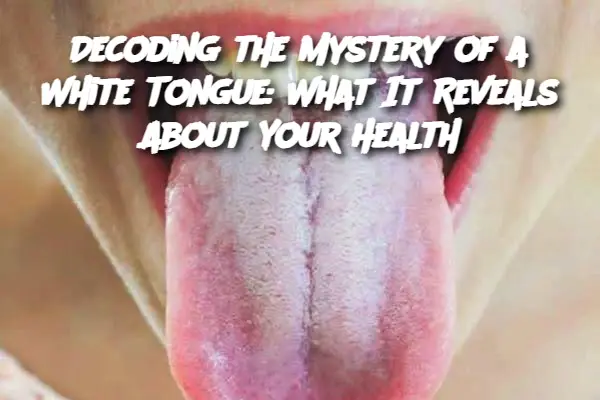Salt Scrub: Gargling with warm salt water can help remove debris and bacteria from the tongue.
Baking Soda Paste: Applying a baking soda paste to your tongue can neutralize acidity and reduce bacterial growth.
Oil Pulling: Swishing coconut or sesame oil in your mouth for a few minutes can help cleanse bacteria and improve oral hygiene.
Aloe Vera Rinse: Aloe vera has natural antibacterial properties that can soothe oral irritation and reduce inflammation.
Frequently Asked Questions
1. Is a white tongue always a sign of infection?
Not necessarily. While infections like oral thrush can cause a white tongue, it can also be due to dehydration, poor oral hygiene, or harmless conditions like geographic tongue.
2. Can stress cause a white tongue?
Yes, stress can weaken the immune system, making you more susceptible to infections like oral thrush, which may lead to a white tongue.
3. When should I see a doctor about my white tongue?
If the white coating lasts more than two weeks, is accompanied by pain, bleeding, difficulty swallowing, or other symptoms, seek medical attention.
4. How can I prevent a white tongue naturally?
Maintaining good oral hygiene, staying hydrated, eating a balanced diet, and avoiding smoking or excessive alcohol use can help prevent a white tongue.
5. Is a white tongue contagious?
A white tongue itself is not contagious, but underlying infections like oral thrush can be spread through close contact.
Conclusion
A white tongue is often a harmless condition that can be managed with proper oral care and lifestyle adjustments. However, persistent white patches or accompanying symptoms may indicate an underlying health issue that requires medical attention. By following good hygiene practices and maintaining a healthy lifestyle, you can keep your tongue—and overall oral health—in top shape.

